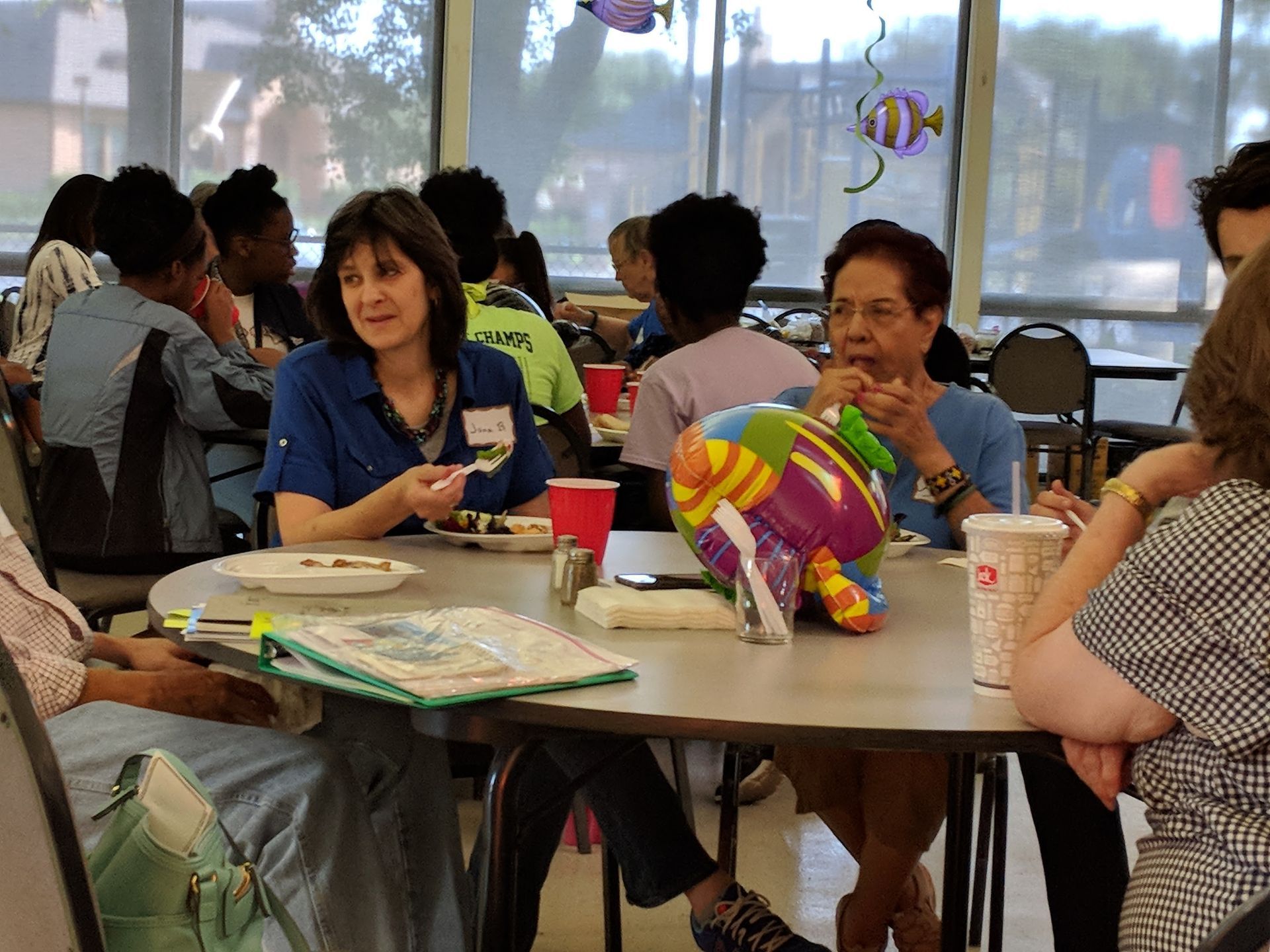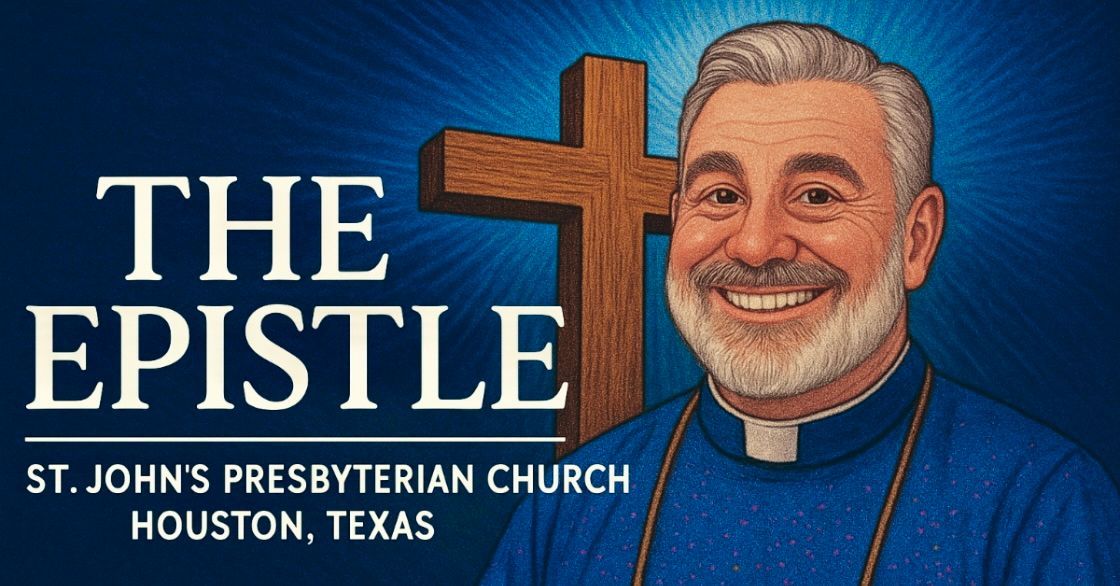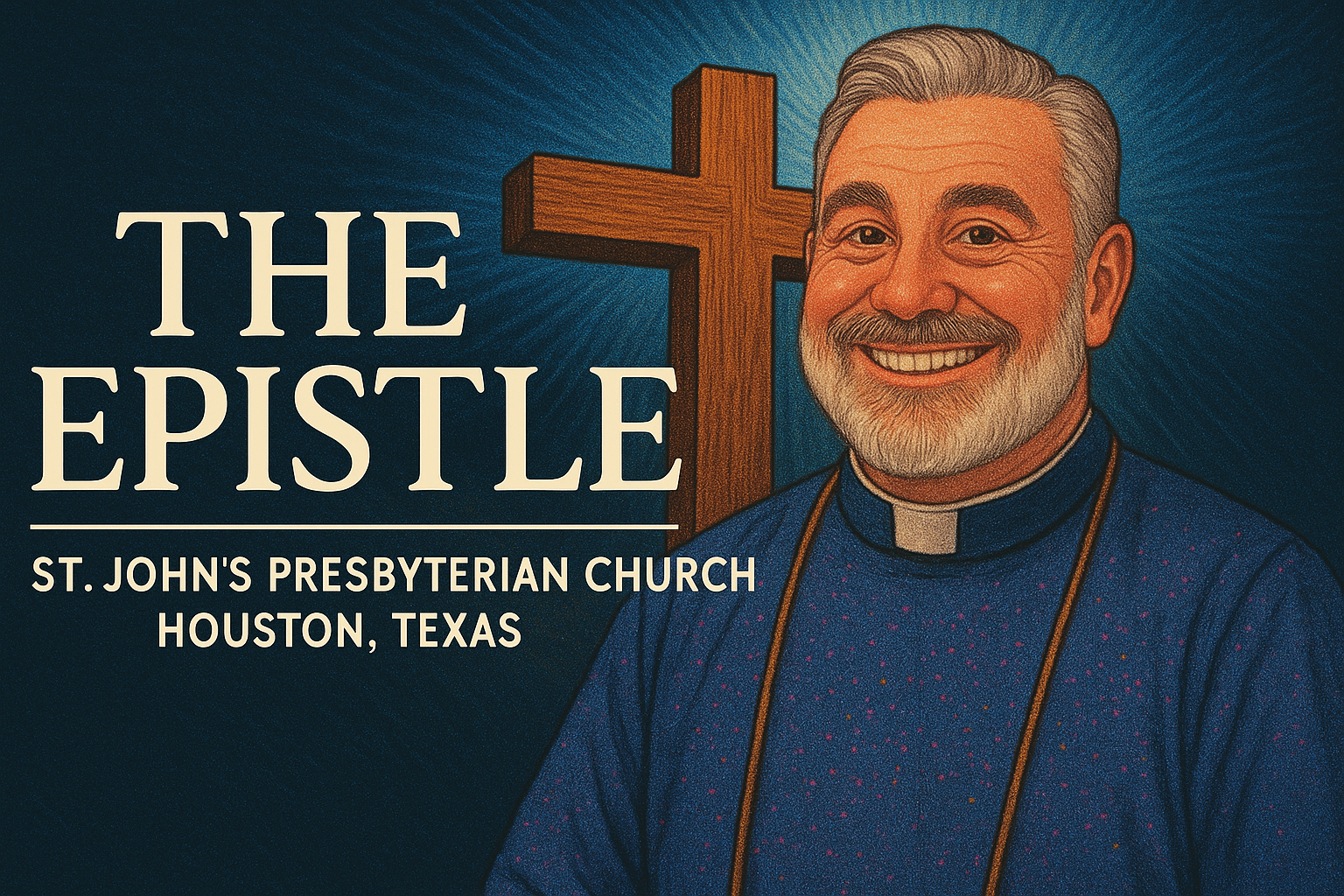Christian Churches in Houston: Why Smaller Churches Create Stronger Community
You can attend the same big church for two years and still feel like nobody knows your name. I hear this all the time from people visiting St. John's Presbyterian Church. They left churches with thousands of members because they were tired of being lonely in a crowd.
Houston has no shortage of churches. Drive down any major road and you'll see everything from storefront congregations to massive campuses with coffee shops and bookstores. The biggest churches get the most attention, the most resources, and often the most visitors. But here's what I've learned after years of pastoral ministry: size and strength are not the same thing.
The strongest Christian communities I've witnessed aren't the ones with the biggest buildings or the most programs. They're the ones where people actually know each other. Where your absence gets noticed. Where your gifts matter because there's room for you to use them. Where mission happens with your hands, not just your wallet.
Let me be clear about what I mean by "smaller churches." I'm not talking about dying congregations clinging to past glory. I'm talking about churches that have chosen to stay a size where real relationships can form. Churches between 50 and 200 people. Large enough to do meaningful ministry. Small enough that you can't hide in the back row forever.
The Loneliness Problem in Big Churches
I talk with a lot of people who are church shopping in Houston. They tell me similar stories. They attended a megachurch for months, sometimes years. They went to services, dropped their kids at children's ministry, grabbed coffee in the lobby. But nobody ever learned their names.
One woman told me she stopped attending her previous church for six weeks to see if anyone would notice. Nobody called. Nobody emailed. When she came back, the greeters welcomed her like she was visiting for the first time. That's when she started looking for something different.
Big churches work hard to combat this. They create small groups and connection ministries. They train greeters and follow up with visitors. But there's a fundamental problem that systems can't solve: you can't know 3,000 people. You just can't.
In my book, The Open Church: Faith that Welcomes Questions, I write about how authentic faith communities require space for people to bring their real questions and struggles. But that requires knowing people well enough to hear those questions. It requires building the kind of trust that takes time and consistent interaction.
Think about your closest friendships. How did they form? Probably through repeated contact in settings where real conversation could happen. You saw each other regularly. You had reason to talk beyond surface pleasantries. You learned each other's stories gradually.
Now think about trying to form those friendships in a crowd of thousands, where the people sitting near you change every week. Where everyone's rushing in and out. Where the structure keeps things moving efficiently but leaves little room for the messy, slow work of actually getting to know someone.
I'm not saying big churches are bad. They serve important purposes. Some people need the anonymity they provide. Some people aren't ready for the accountability that comes with being truly known. But if you're searching "Christian churches in Houston" because you want authentic community, understanding church size matters.
What Real Christian Community Actually Requires
Let me tell you what happens at St. John's when someone misses worship for two weeks in a row. People notice. Not in a guilt-inducing "where were you?" way. But in a genuine "I missed seeing you, is everything okay?" way.
When Margaret went into the hospital last month, she didn't have to organize her own care team. Our Caring and Fellowship Committee already knew about her health challenges because they'd been walking with her through them. They coordinated meals, rides to appointments, and visits. Not because a computer system flagged her as needing help, but because people who actually know her saw the need.
Real Christian community requires a few key things that smaller churches provide more naturally.
You need to be known. Not just as "the tall guy who sits in the back" or "the woman with the three kids." Known. People need to know your name, your story, some of what you're dealing with in life. That kind of knowing takes time and repeated interaction.
You need to be needed. Your gifts need to matter. When your church has 200 people instead of 2,000, those gifts are essential, not optional. We need John's carpentry skills for mission projects. We need Sarah's teaching abilities for Sunday school. We need Tom's accounting knowledge for finance committee. Nobody sits on the sidelines because we're too small to waste anyone's gifts.
You need to be missed. When you're gone, it should create a noticeable gap. Not because the show can't go on without you, but because the community is diminished by your absence. You matter not just as a donor or volunteer, but as a person whose presence has value.
You need space to be real. As I explore in The Open Church, faith communities need to welcome questions, doubts, and struggles alongside certainties. That requires trust. You can't share your real questions with strangers. You need to know the people you're being vulnerable with.
Large churches can provide some of this through small group systems. But here's what I've noticed: in a church of 2,000, your small group becomes your real church, and the big weekend service becomes something else. It's a show you watch, not a community you belong to. There's nothing wrong with that if it works for you. But be honest about what you're getting.
The Mission Advantage of Smaller Churches
Here's something people don't expect: smaller churches often do more hands-on mission work per capita than large ones. Not because we have bigger budgets. We don't. But because mission in smaller churches tends to be relational, not transactional.
At St. John's, mission means showing up. We partner with Small Steps Nurturing Center down the street. Our members volunteer as reading buddies with kids who need extra support. That's not writing a check to a worthy cause. That's Alice spending an hour each week with a first-grader, building a relationship, becoming someone who matters in that child's life.
We maintain a community garden where neighbors grow food together. We run a food pantry where people who receive help often become volunteers. We support PCHAS (Presbyterian Children's Homes and Services) not just financially but with our time and energy. These aren't programs we hire staff to run. They're ministries we do together.
One of the things I discuss in The Open Church is how authentic faith requires action that costs us something. When mission is hands-on, it changes you. You can't maintain stereotypes about "people in need" when you're working beside them. You can't stay comfortable in your privilege when you're confronted with real human struggles up close.
Large churches can fund bigger projects. They can write larger checks. But there's something about smaller-scale, relational mission that forms deeper Christian community. When ten people work together on a Habitat house, they bond differently than when they show up for a mega-church's annual mission day with 200 other volunteers they'll never see again.
Why Presbyterian Polity Works Better at Smaller Scale
I should mention something about how Presbyterian churches are organized, because it matters for this conversation about community. Presbyterian governance is built on the idea that decisions should be made by elected elders who know the congregation.
At St. John's, our session (the group of elders who make decisions) actually knows the people they're serving. When we're discussing budget priorities or ministry direction, we're not talking about demographics and statistics. We're talking about actual people. We know who's struggling financially. We know whose kids need youth programming. We know which mission projects our members are passionate about.
This kind of governance works beautifully at smaller scale. Elders can know the congregation well enough to lead with wisdom. Members can know the elders well enough to trust their leadership. Decisions get made with real people in mind, not just institutional priorities.
Try doing that in a church of 5,000. Your elders can't possibly know everyone. Leadership becomes more about management and systems than pastoral care and spiritual discernment. Nothing wrong with that approach, but it's fundamentally different from what Presbyterian polity was designed to do.
The Worship Difference You Can Feel
Walk into a service at St. John's and you'll notice something. It's not a performance you watch. It's something you participate in. The difference is subtle but profound.
We don't have a light show or a band you'd pay to see in concert. We have a choir of people you know, led by someone you know, supporting worship you're part of. When we sing hymns, you can hear individual voices around you. When we pray, we name specific people and situations, not generic categories.
Our sermons aren't designed to entertain thousands or go viral on social media. They're meant to connect Scripture with the actual lives of the people in the room. When I preach, I'm thinking about conversations I've had that week, struggles I know people are facing, questions that came up in Bible study.
This is one reason I value smaller church worship. It can be specific and personal in ways that preaching to masses can't. I can reference things our community is actually dealing with. I can connect Scripture to real situations. I don't have to be so broad that I'm basically delivering motivational speeches with Bible verses sprinkled in.
After worship, coffee hour isn't a quick greeting with strangers. It's genuine conversation with people you know. Those conversations matter. They're where real Christian community happens. Someone mentions they're worried about a family member, and three people immediately offer to help. Someone shares a joy, and everyone celebrates. That's church.
What We Give Up by Staying Small
I should be honest about what smaller churches don't offer. We can't provide programs for every age and interest. We don't have professional-level children's ministry with elaborate sets and curriculum. We can't offer multiple service times and styles to fit every preference. Our building is modest, not impressive.
If you want a church where you can consume religious services without anyone bothering you, we're not it. If you want a place where your kids can have the same production-value experience they'd get at an amusement park, we can't compete. If you want to blend into the crowd and avoid any expectation that you'll contribute, you'll be disappointed.
But here's what I've learned: most of what we give up by staying small is stuff that sounds good but doesn't actually build community. The very things that make big churches attractive are often the things that prevent real relationships from forming.
The anonymity that lets you slip in and out unnoticed? That's the same anonymity that leaves you lonely. The professional-level programming? That's what makes church feel like a service you consume rather than a community you belong to. The multiple service options? That's what prevents you from worshiping with the same people week after week, which is how you actually get to know them.
In The Open Church, I argue that authentic faith communities need to make space for people to question and grow, even when that's messy. Smaller churches do that better precisely because they can't hide the mess. When someone's struggling, we all know it. When someone's questioning their faith, they can't do it privately. That sounds uncomfortable, and sometimes it is. But it's also how real spiritual formation happens.
The Questions You Should Ask When Church Shopping
If you're searching for Christian churches in Houston, let me suggest better questions than "which one has the best programs?" or "where do people like me go?"
Ask: "Where will I be known by name within a few months?" If you've been attending somewhere for six months and still feel anonymous, that tells you something.
Ask: "Where will my gifts be needed and used?" Not someday after you've volunteered for two years, but relatively soon. Churches that need you will find ways to include you.
Ask: "Where does mission involve my hands, not just my wallet?" Both matter, but if a church only wants your money, that's transactional, not transformational.
Ask: "Where can I bring my real questions without getting easy answers?" Faith that can't handle doubt isn't faith worth having.
Ask: "Where is worship participatory, not performative?" If you're essentially attending a concert with a motivational speech, that's fine, but don't confuse it with Christian community.
Ask: "Where will my absence be noticed and my presence valued?" You should matter as more than a donor or a number.
These questions will naturally lead you toward smaller congregations. Not because big churches are bad, but because the things you're actually looking for happen more readily at smaller scale.
Why This Matters for Your Faith Journey
I watch people grow spiritually in smaller church settings in ways I rarely saw in larger ones. There's something about being truly known, truly needed, and truly accountable that forms faith differently.
When you're in a small church, you can't just show up and observe. You have to participate. That participation changes you. When you're reading with a child at Small Steps, you're not just doing charity. You're being formed into someone who sees and responds to need. When you're praying with people who know your struggles, you're not just reciting prayers. You're practicing vulnerability and trust.
When you know everyone's name, you can't maintain comfortable categories about who deserves help and who doesn't. When you work beside people on mission projects, you can't stay isolated in your own demographic. When you worship with the same folks week after week, you learn to love people who aren't like you.
This is the beauty of smaller churches. They force you into the kind of relationships that actually form Christian character. You can't hide. You can't coast. You can't keep faith compartmentalized from the rest of your life.
That's uncomfortable sometimes. I won't pretend it isn't. But it's the kind of uncomfortable that leads to growth. It's the kind of challenge that deepens faith rather than letting it stay shallow.
Making the Choice That Fits Your Season
Some of you reading this aren't ready for a smaller church. Maybe you're in a season where you need the anonymity a larger church provides. Maybe you're healing from past church hurt and need some distance. Maybe you're just beginning to explore faith and aren't ready for the vulnerability that smaller communities require.
That's okay. Different seasons of life require different things from church. I've had seasons where I needed to sit in the back and just absorb without anyone expecting anything from me. There's no shame in that.
But if you've been in a large church for a while and feel like something's missing. If you're tired of being lonely in a crowd. If you want to be known, to matter, to serve in ways that actually make a difference. If you're ready for faith that costs you something and changes you in the process. Then maybe it's time to visit a smaller church.
An Invitation to Experience the Difference
St. John's Presbyterian Church isn't the only good small church in Houston. But we're one of them. We worship Sundays at 11:00 AM at 5020 West Bellfort Avenue in Houston's Westbury neighborhood.
Come visit us. Not because we're perfect. We're not. We're a collection of imperfect people trying to follow Jesus together. But come see what authentic Christian community actually looks like when churches stay a size where everyone can know everyone else.
You'll walk into a sanctuary that seats 200, not 2,000. You'll hear a choir of 15 people, not 150. You'll meet a pastor who will actually remember your name next week. You'll find people who will genuinely care if you come back.
More importantly, you'll find a community that needs you. Not eventually, but now. We're small enough that your gifts matter, your presence is valued, and your absence is noticed. We're doing real mission work that requires real people showing up and serving with their hands.
This is what I believe church should be. A community small enough that everyone matters. Large enough to make a real difference. Serious enough about faith to welcome hard questions. Committed enough to mission that it costs us something beyond our comfort.
If that sounds like what you're looking for, we'd love to meet you. Come join us for worship. Stay for coffee hour. Ask questions. Meet some folks. See if this is the kind of community you've been searching for.
Houston has thousands of churches. But you don't need thousands. You just need one where you'll be known, needed, and challenged to grow into who God is calling you to become.
That's what smaller churches offer. That's what we offer at St. John's. And if you're tired of being lonely in a crowd, it might be exactly what you need.
Continue Exploring
If you're interested in learning more about finding authentic Christian community in Houston, you might enjoy these related articles:
Bible Study Houston: Where to Find Scripture Study That Goes Deeper explores how to find Bible study groups that move beyond surface-level devotionals into genuine engagement with Scripture.
Why St. John's Presbyterian Stands Out looks at what makes our particular community distinctive in Houston's diverse church landscape.
Best Non-Mega Church in Houston: Why St. John's Presbyterian Offers Real Faith Beyond Hype examines the specific advantages of choosing a smaller, mission-focused congregation over entertainment-driven megachurches.
Imperfect Faith in Houston: Why St. John's Presbyterian Welcomes Real Life discusses how authentic Christian communities make space for doubt, questions, and real struggles alongside faith.
Each of these articles digs deeper into what authentic Christian community looks like and how to find it in Houston. Whether you're just beginning your church search or reconsidering where you currently worship, these resources can help guide your journey toward the kind of community where you'll truly belong.





